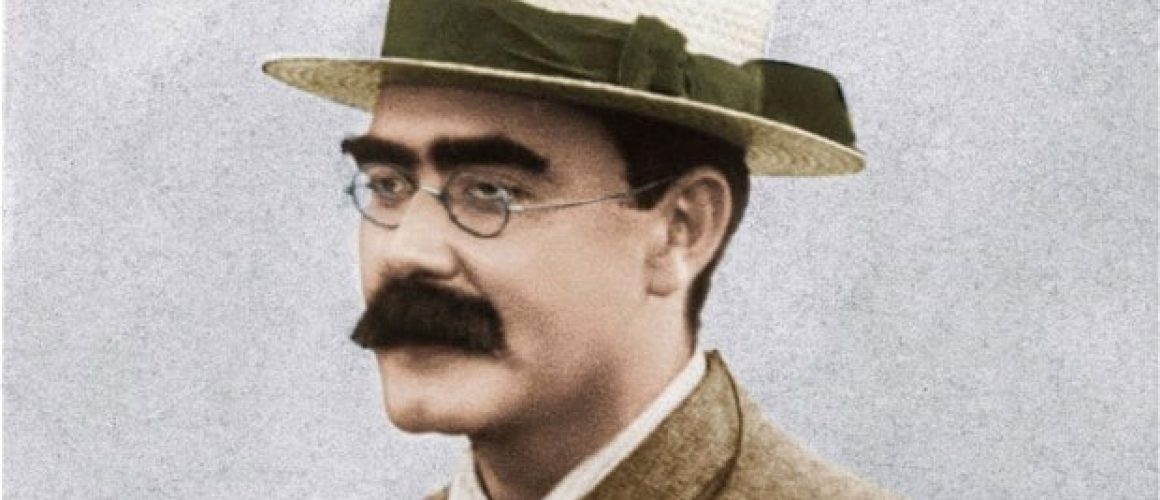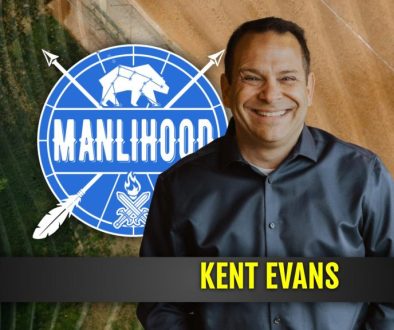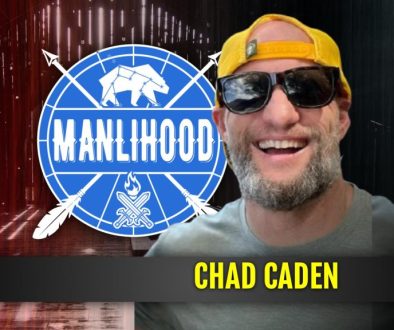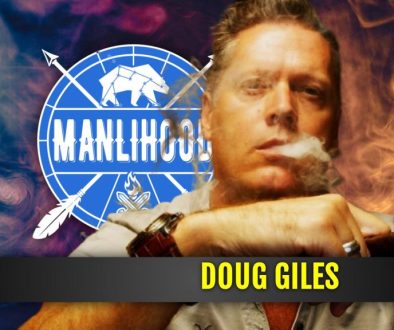Rudyard Kipling #mancrushmonday
Every Monday At Manlihood.com – we celebrate men of courage, valor, creativity, innovation, and honor. We celebrate men who have accomplished great things, that have set good examples, and then have made the world a better place. This is #mancrushmonday
Rudyard Kipling

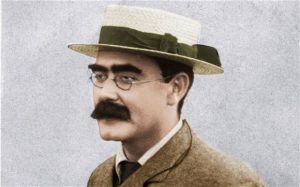 Kipling wasn’t a man of strength, or even valor in the sense that he wasn’t a warrior. No, he was a thinker, and skilled with the pen. He used his pen to inspire greatness and inject values into folk tales, legends, and poems.
Kipling wasn’t a man of strength, or even valor in the sense that he wasn’t a warrior. No, he was a thinker, and skilled with the pen. He used his pen to inspire greatness and inject values into folk tales, legends, and poems.
According to Wikipedia:
Kipling’s works of fiction include The Jungle Book (1894), Kim (1901), and many short stories, including “The Man Who Would Be King” (1888).[2] His poems include “Mandalay” (1890), “Gunga Din” (1890), “The Gods of the Copybook Headings” (1919), “The White Man’s Burden” (1899), and “If—” (1910). He is regarded as a major innovator in the art of the short story;[3] his children’s books are classics of children’s literature; and one critic described his work as exhibiting “a versatile and luminous narrative gift”.[4][5]
Kipling was one of the most 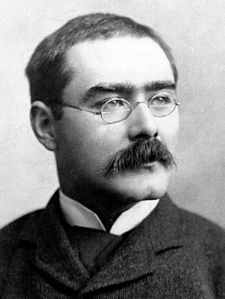 popular writers in the United Kingdom, in both prose and verse, in the late 19th and early 20th centuries.[3] Henry James said: “Kipling strikes me personally as the most complete man of genius, as distinct from fine intelligence, that I have ever known.”[3] In 1907, at the age of 42, he was awarded the Nobel Prize in Literature, making him the first English-language writer to receive the prize, and its youngest recipient to date.[6] He was also sounded out for the British Poet Laureateship and on several occasions for a knighthood, both of which he declined.[7]
popular writers in the United Kingdom, in both prose and verse, in the late 19th and early 20th centuries.[3] Henry James said: “Kipling strikes me personally as the most complete man of genius, as distinct from fine intelligence, that I have ever known.”[3] In 1907, at the age of 42, he was awarded the Nobel Prize in Literature, making him the first English-language writer to receive the prize, and its youngest recipient to date.[6] He was also sounded out for the British Poet Laureateship and on several occasions for a knighthood, both of which he declined.[7]
Kipling’s subsequent reputation has changed according to the political and social climate of the age[8][9] and the resulting contrasting views about him continued for much of the 20th century.[10][11] George Orwell called him a “prophet of British imperialism“.[12] Literary critic Douglas Kerr wrote: “[Kipling] is still an author who can inspire passionate disagreement and his place in literary and cultural history is far from settled. But as the age of the European empires recedes, he is recognised as an incomparable, if controversial, interpreter of how empire was experienced. That, and an increasing recognition of his extraordinary narrative gifts, make him a force to be reckoned with.”[13]
Check out what Stephen Mansfield says about Kipling’s poem “If”
“This brilliant articulation of vital manhood came from the pen of a small, unathletic, bespectacled, bookish, bullied, insecure man whom friend expected would become almost anything other than the prophet of manhood for his time. How we need men like him today – men who refuse to let biology define their destiny and who live inspired by a fiery inner vision of the masculine life.”
And here is the poem!
IF
By Rudyard Kilpling
If you can keep your head when all about you
Are losing theirs and blaming it on you,
If you can trust yourself when all men doubt you
But make allowance for their doubting too,
If you can wait and not be tired by waiting,
Or being lied about, don’t deal in lies,
Or being hated, don’t give way to hating,
And yet don’t look too good, nor talk too wise:
If you can dream–and not make dreams your master,
If you can think–and not make thoughts your aim;
If you can meet with Triumph and Disaster
And treat those two impostors just the same;
If you can bear to hear the truth you’ve spoken
Twisted by knaves to make a trap for fools,
Or watch the things you gave your life to, broken,
And stoop and build ’em up with worn-out tools:
If you can make one heap of all your winnings
And risk it all on one turn of pitch-and-toss,
And lose, and start again at your beginnings
And never breath a word about your loss;
If you can force your heart and nerve and sinew
To serve your turn long after they are gone,
And so hold on when there is nothing in you
Except the Will which says to them: “Hold on!”
If you can talk with crowds and keep your virtue,
Or walk with kings–nor lose the common touch,
If neither foes nor loving friends can hurt you;
If all men count with you, but none too much,
If you can fill the unforgiving minute
With sixty seconds’ worth of distance run,
Yours is the Earth and everything that’s in it,
And–which is more–you’ll be a Man, my son!

